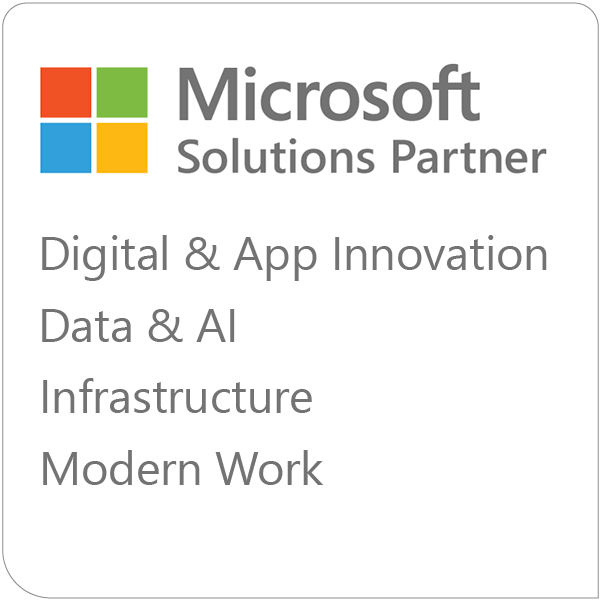The theory and technology of data analytics are not new. They are decades old - the theory has not changed, but the technology and techniques most certainly have. Data analytics used to be something only accessible to large Fortune 500 companies but advances in technology have made businesses of all sizes interested in the value their data can provide.
However, even with advances in technology, many SMBs don’t think that they should spend the time and effort building a data analytics practice, assuming that it is only for their larger competitors. But, there are valuable insights and stories to be told through your company data – you just have to have the understanding and tools to access it.
Let’s dive into learning more about what dark data is and how to access it, applications that data analytics can provide every organization, and explore a few low-cost tools to get you started.
Understanding dark data
The term dark data refers to the data that your business collects, stores, and either underutilizes or does not use at all. Nothing is threatening or sinister about dark data – it is quite the opposite. Dark data simply refers to information assets that companies collect, process or store, but fail to use.
Dark data has value but often slips between the cracks. Common examples include unused customer data, email attachments that are opened and left undeleted, and old customer support tickets. With dark data predicted to account for 95% of all data by 2021, a growing number of organizations are taking steps to utilize it.
One example of doing this is by using the data from customer support logs to see which medium a customer used to initiate contact and how long the interaction lasted. This dark data allows a business to determine a person's preferred method of contact so they can deliver a better customer service experience moving forward. In terms of methods for generating unused data, web data integration is extremely effective. It involves converting websites into structured, usable data for in-depth insights that can then be integrated into analytics and business applications.
4 ways SMBs can use data analytics
What exactly does a data analytics practice look like for a small or medium-sized business? Here are 4 ways you can infuse data analytics into your organization right now:
1. Track customers throughout different stages of the lifecycle. Small businesses can use data analytics to determine a particular segment of customers that are ready to buy (and more importantly, when).
2. Improve customer service. Machine learning tools can analyze conversations between sales representatives and customers on channels like email, chat, and social media. Thus, providing a greater level of insight into common issues customers are having that can be leveraged to ensure that customers have an amazing experience with a product, service, or brand.
3. Identify overarching patterns and trends. For example, if numerous customers are contacting a business and asking the same questions, it might make sense to create a dedicated page that addresses these questions in depth. In effect, this new website page could increase sales as it addresses common questions that potential buyers face or help strengthen a brand's unique selling point (USP), all made possible through data analytics.
4. Gain insight into all aspects of your operations. Data analytics provides a detailed analysis of customer behavior. In turn, allows business owners to learn what motivates consumers to buy their products or services. This is incredibly valuable because small business owners can use this information to identify which marketing channels to focus on in the future (i.e., save on marketing spend while increasing revenue at the same time).
No matter the size of your business, valuable insights are waiting to be discovered through the practice of analyzing your website, customer, and business data!
4 low-cost tools to begin your data analytics practice
The insights from data analytics help to reduce how much a business spends on marketing and product development. Rather than funneling big money into multiple marketing strategies that are only getting minimal results, by using data analytics, small businesses can concentrate on just a few proven ones that are generating high-quality leads.
And the great thing about this technology is that it does not have to cost an arm and a leg. Here are some very affordable resources that can provide small business owners with a wealth of information:
- Google Analytics and Clicky offer robust website reporting with free and premium versions. They are ideal for learning about where your traffic is coming from, which marketing strategies are most effective, how visitors explore your site, potential friction points, and more.
- Wolfram Alpha is a computational intelligence platform that also comes in free and paid versions and allows you to compute expert-level answers using their signature algorithms, knowledge base, and AI technology.
- Microsoft Power BI is a powerful platform for generating visualized business data on everything from gross profit and revenue to store/warehouse demand and turnover. With their Pro option only costing $9.99 per user, per month, it's an affordable option for most small businesses.
The bottom line is that there are countless analytics tools available that can generate data for every aspect of business imaginable, that are either free or inexpensive. If you’re not confident in data analytics, many of these tools have built-in visualization features to help you understand your data and find meaning within it.
In Conclusion
With two out of three companies now adopting data analytics, the process is strongly shaping the modern business world and is something most brands want to utilize. The trends mentioned here indicate a swift evolution of data analytics and demonstrate their power to transform multiple aspects of operations. Whether it's mimicking the knowledge acquisition of the human brain through machine learning and deep learning or capitalizing on unused dark data to gain a competitive edge, the new era of data analytics has some intensely practical applications that businesses should notice.
How true is this for you, and how much data does your business already have, that is not being used to grow your business? By creating a cornerstone, or platform, that the data can tell its story, you can begin the journey for far less than you think.
Data analytics, on an initial micro-scale, are available from Emergent Software. We can give small to medium size companies the ability to access the data, to hear and understand what the future can hold, just by listening to the stories that the data is telling them. Interested in learning more? Contact our team of experts today!






